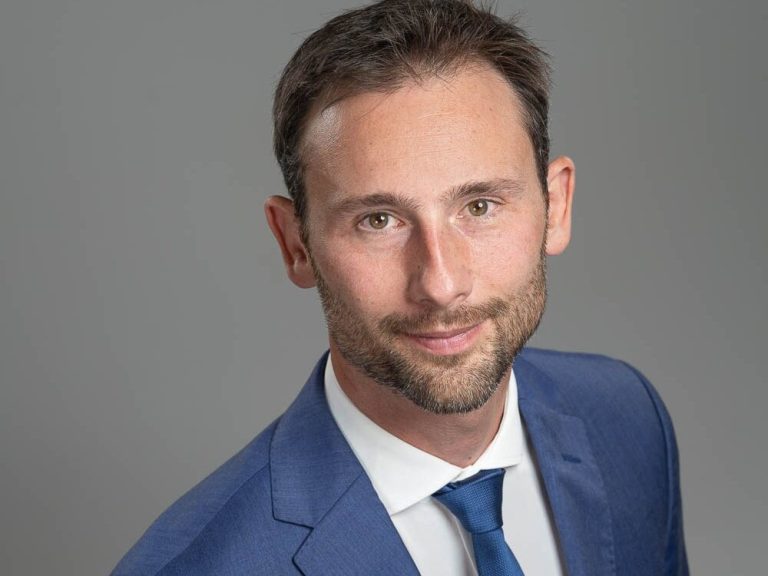Legislation in health care. Experts at the Wprost debate: “These laws are a fundamental change”

In recent months, laws have been passed that will shape the health care system for years to come. This includes: Act on Quality, Act introducing the Compensation Fund for Adverse Events, Act on Certain Medical Professions. Now is the time to implement them, announced Deputy Minister of Health Piotr Bromber during the Wprost debate at the Economic Forum in Karpacz.
Adopting the laws was not easy, there were many discussions and often disputes around them. – All acts passed this year are important and were expected, both by patients, representatives of medical professions and healthcare providers. Some of them had to wait even more than a dozen years, such as the Act on Certain Medical Professions, the Act on Emergency Medical Services, the Act on Quality or the Act on Laboratory Medicine, argued Deputy Minister Piotr Bromber.
15 medical professions and medical education
The Act on Certain Medical Professions was passed in August. It regulates 15 medical professions, including: podiatrist, preventive medicine, occupational therapist, addiction therapy instructor, dental assistant, medical caregiver. – The adoption of this act determines the sense of security of patients who will know that they are using the services of medical professionals. The provisions of this act also strengthen the regulated medical professions, said Deputy Minister Bromber.
He recalled that the Act on New Medical Professions also regulates the liability of medical professions, the education system, and training leave; in the case of medical professions, a continuing education process is often necessary, as medicine and technologies are currently changing very quickly.
Deputy Minister Bromber also noted that the ministry had introduced a number of changes in both pre- and postgraduate education of doctors. – We listened to the voice of the community and the voice of students, we asked them about their needs. It turned out that one of the biggest problems they talk about is communication with the patient, stress and burnout. That is why we are introducing a module on communication and coping with stress into pre-graduate education – argued the deputy minister.
Quality Act
Dr. Małgorzata Gałązka-Sobotka, director of the Institute of Health Care Management at Lazarski University, emphasized that the most important thing is that the adopted laws are complementary and complement each other, which is a condition for an efficient and sustainable health care system. – Adopting one act would not change reality. The effect is brought only by the combination of many regulations and a pro-quality approach to the health care system, which is why it is so important to correct the activities of many areas at the same time – said Dr. Małgorzata Gałązka-Sobotka.
In her opinion, the adoption of the Act on Quality in Health Care is of fundamental importance. – For many years I have been calling for the creation and adoption of an act on quality, it is a very important act for changing the paradigm of the health care system. I was very surprised how many groups questioned the sense of this act, after years of debates on quality, it was astounding to me, it turned out that many people saw the flaws and threats, and forgot about the benefits for patients and the system – said Dr. Gałązka-Sobotka .
– This is certainly one of the most important laws passed, and it is also worth emphasizing the fact that it would not have been passed if it were not for the persistence and consistency of Minister Adam Niedzielski. The work on this bill was also a great lesson for us that through dialogue we can achieve a goal. Today, it is not enough to be right, you also need to be able to talk. There were many meetings, conversations and doubts. The fact that the Quality Act was passed is primarily due to the success of patients and the success of the health care system, said Deputy Minister Bromber.
Anna Miszczak, director of the Department of Health Care Services of the National Health Fund, pointed out that currently the National Health Fund and the Center for Monitoring Quality in Health Care face many tasks related to the implementation of the Quality Act, including: development of pro-quality criteria that units must meet. In order to provide services from public funds, each hospital will have to obtain authorization from the president of the National Health Fund. They will be awarded to facilities that maintain an internal quality monitoring system and provide health care services in compliance with the conditions for their implementation. Director Miszczak also emphasized that the Act on the national oncology network, which fully regulates patient care, is very important from the point of view of both patients and healthcare providers.
Compensation for medical incidents
According to the Ombudsman for Patients’ Rights, Bartłomiej Chmielowiec, an extremely important act for patients, but also for the entire health care system, was the amendment to the Act on Patient Rights and the Ombudsman for Patients’ Rights, introducing a register of adverse events and the Medical Event Compensation Fund.
From September 6, patients who suffered health damage as a result of medical procedures during their stay in hospital can apply for compensation out of court. – The Act introduces very favorable solutions for patients. All you need to do is submit an application, which can be done by the patient or his family. The application will be analyzed by a team of outstanding experts; if it determines that an adverse event and health damage occurred, the patient will receive compensation within 3 months. This is a much easier way than going to court. We are introducing a fast track for compensation, which is important for patients, for health care facilities, because they will know what needs to be improved, but also for doctors, said Bartłomiej Chmielowiec. He emphasized that currently the new compensation path applies only to people who suffered health damage in a hospital contracted with the National Health Fund. However, this is the first step. – In a year, the Commissioner will present conclusions on the implementation of the Act, we will try to include further areas in it; both medical events that occurred in private hospitals, such as AOS or primary care hospitals. We assume that within three years we will reach the perspective that exists in Denmark, said Minister Chmielowiec.
Time to implement
Katarzyna Lisowska from the Per Humanus Foundation emphasized that patients participated in the work and consultations on all laws. She expressed hope that the adopted laws would change the reality of patients in the health care system. She also spoke about concerns regarding the implementation of certain acts, including: introducing free medicines for people aged 65 and over, noting that mechanisms should be introduced to prevent medicines from being wasted. – We are also waiting for further laws and further important changes, including: on the act on the national hematology network – said Katarzyna Lisowska.
The participation of patients in creating law was also emphasized by Stanisław Maćkowiak from the Federation of Polish Patients. He also noted that the voice of patients with rare diseases, who have not been listened to so far, is becoming more and more visible in the system. However, today patients primarily expect real benefits from the passed laws.
– Now is the time to implement the laws – said Deputy Minister Bromber. – When you see the everyday system, you become more impatient when the laws will actually start to be implemented, to the benefit of all patients – noted Dr. Małgorzata Gałązka-Sobotka. – Patients are very much waiting for this, for real changes – noted Stanisław Maćkowiak.
The following participants took part in the Wprost debate “Legislation in health care: what has already been achieved, what is still ahead of us”: Deputy Minister of Health Piotr Bromber, Bartłomiej Chmielowiec, Patient Ombudsman; Małgorzata Gałązka-Sobotka, Ph.D., director of the Institute of Health Care Management at Lazarski University; Anna Miszczak, director of the Department of Health Care Services of the National Health Fund; Stanisław Maćkowiak, president of the Federation of Polish Patients; Katarzyna Lisowska, Per Humanus Foundation
You can watch the entire debate:






